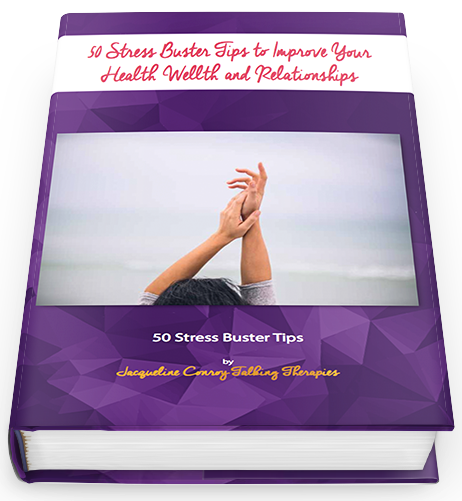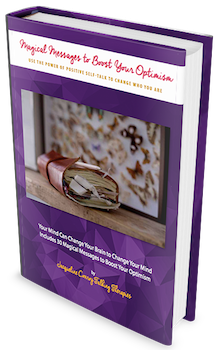
State of mind State of body State of spirit
Practitioners of meditation and yoga have a fundamental understanding of the connection between mind, body and spirit. Eastern health practitioners use this principal to heal physical and mental health problems. More recently Western neuroscientists have made a body-mind-spirit connection explicit in the treatment of stress and trauma related mental and physical illness.
Stress!
Too many deadlines? Too much drama in your life? The World Health Organisation has stated that stress is an epidemic of the 21st Century. It is absolutely critical to reduce the high levels of stress that you experience – your physical, mental and spiritual health depends on it! The U. S. Centre for Disease Control recently reported that more than 50% of deaths in the under 65 age group are stress related. Chronic high levels the stress hormone cortisol is believed to hard wire your brain, reducing access to the thinking part of your brain (prefrontal cortex). This works to keep your brain and body stuck in the ‘flight-fight-freeze’ or fear response. Your brain and body are in constant states of heightened emotions and hyper-arousal. In the fear response you are unable to access the learning and creativity parts of the brain.
Stress is normal. Managed stress is positive and keeps you alert to danger and ready to respond to changes in your world. Stress becomes negative when you are continually triggered by stressful challenges without any downtime – relief or relaxation. Prolonged periods of hyper-stressed states (greater than 3 hours) or chronic stress leads to feelings of worry and overwhelm and predisposes you to anxiety and post-traumatic stress. When the body’s cortisol/stress hormone level is exhausted the body and brain ‘fall flat’ into a state of hopelessness and helplessness and feelings of depression. Negative health outcomes are also linked to chronic stress – sleep problems, heart disease, cancer, addictive behaviours and relapse.
The neuroscientist Rick Hansen describes the hyper-stressed part of his Stress Model as the Red Zone. In his Stress Model Rick also explains the Green Zone (normal levels of stress hormone) as the state of being where you feel connected, present and have the ability to love and be loved.
Better concentration and creativity, more stable moods, improved communication and relationships, better physical health and an increased sense of control of time and activity are a few of the benefits of stress reduction.
"The Greatest Thing You Will Ever Learn is to Love and Be Loved in Return" ~ David Bowie
How you can get into the Green Zone
- Decrease your stress triggers
- Reduce and relieve your stress
- Change your lifestyle
- Change your Perspective
Become More Optimistic and Manage Your Stress
Researchers from Concordia University found that optimists stress hormone levels remain more stable in the face of stressful moments compared to pessimists. Click here to see how optimism helps manage stress hormones.
A glass can be seen as half full or half empty and both are accurate. However, taking a more optimistic view of the situation is better for your mental and physical health. Even if you are a born pessimist you can still tap into the benefits of optimism. “Optimism is a skill that anyone can practice and improve,” says psychologist Elizabeth Lombardo, PhD, author of A Happy You: Your Ultimate Prescription for Happiness. Recent research indicates that optimists and pessimists approach problems differently, and their ability to cope successfully with adversity differs as a result. Winston Churchill’s famous quote “a pessimist sees the difficulty in every opportunity; an optimist sees the opportunity in every difficulty” suggests we could all benefit from these traits. Optimism not only helps you move into a solution finding mindset in the face of adversity but has health benefits as well. Studies have shown that an optimistic perception can improve the immune system, prevent chronic disease, and help people cope with unfortunate news.
What is Optimism?
Martin Seligman, father of positive psychology, defines optimism as reacting to problems with a sense of confidence and high personal ability. Optimistic people believe that negative events are temporary, limited in scope (instead of pervading every aspect of a person’s life), and manageable. Seligman began his career studying depression, stress, and anxiety. From his work in these areas, he discovered that the optimistic approach acted as a protective factor against the development of depression when faced with difficult circumstances.
It also appears that optimists experience less stress than pessimists or realists. Because they believe in themselves and their abilities, they expect good things to happen. They see negative events as minor setbacks to be easily overcome, and view positive events as evidence of further good things to come. Believing in themselves, they also take more risks and create more positive events in their lives.
Boosting Your Optimism – Even if You’re a Cynic
A tendency towards pessimism seems to be part of some people’s genetic makeup. However, your environment and your life experience also shape your perceptions. Whether you are the type of person who tends to see the sun or the clouds on a partly cloudy day, you can boost your optimism.
One of the best ways you can train your brain for optimism and improve your emotional and physical well-being is to be optimistic. Practicing optimism for ten to twelve seconds will rewire your brain from the negative frame bias to a positive frame bias - the glass half empty to the glass half full attitude to life.
‘Drop by Drop the water pot is filled’ - Buddhist proverb
Little by little you can fill yourselves with optimism and a can-do attitude. Positive self-talk and inspiring notes to yourself affirm your self-belief and ability to manage life’s challenges and adversities. You can change your attitude and perspective. With an optimistic attitude you will become more proactive in reducing and relieving your stress.
Boosting your optimism can change your actual reality.
Be optimistic
Jacqueline
PS My 50 Stress Buster Tips and Magical Messages to Boost Your Optimism books is a brilliant package to get you started to manage your stress and live a more optimistic life. Available NOW in the 2016 Women's Self-Care Bundle.




